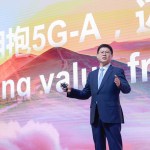News
Vendor says WiFi, cellular networks able to meet 81% of global demand by 2020.
Nokia this week warned that the capacity of WiFi and cellular networks is not growing quickly enough to satisfy future demand for mobile content.
According to Bell Labs – acquired by the Finnish vendor as part of its €15.6 billion purchase of Alcatel-Lucent – by 2020, WiFi and cellular networks together will have capacity sufficient to carry 81% of projected mobile content traffic, leaving 19% of demand unmet.
"Network operators will need to accelerate their path to 5G and cloud technologies, such as network functions virtualisation (NFV) and software-defined networking (SDN), and adopt new business models to address the demand gap," Nokia said, in a statement on Wednesday.
Nokia also warned that the Internet of Things (IoT) remains an unknown quantity when it comes to its contribution to mobile network traffic.
The company expects the number of connected IoT devices to grow from 1.6 billion in 2014 to between 20 billion and 46 billion by 2020. Cellular IoT devices will account for just 1.6 billion-4.6 billion of that total.
Nokia said "the overall cellular traffic generated by IoT devices will only account for 2% of the total mobile traffic by 2020," the main reasons being that cellular connections will be in the minority, and that simple, non-video-enabled IoT devices will predominate early on, typically transferring small amounts of data.
However, from 2020 onwards, Nokia expects upstream video traffic from IoT connections to grow rapidly, driven by surveillance cameras, car dashboard cameras, and body-worn cameras.
"The next evolution of humankind will involve ‘life automation’, and the creation of a world in which billions of interconnected things including smart objects, cameras, robots, sensors and processes exchange real time video and data streams – not only with people, but with cloud-based systems that extract knowledge from this data and perform tasks to make our work and home lives more convenient and our environments more intelligent," said Bell Labs president and Nokia CTO Marcus Weldon.
"This new digital era will produce a dramatic shift in demand, challenging mobile operators to achieve the highest performance at the lowest cost per bit while supporting extensive personalisation," he said.

















